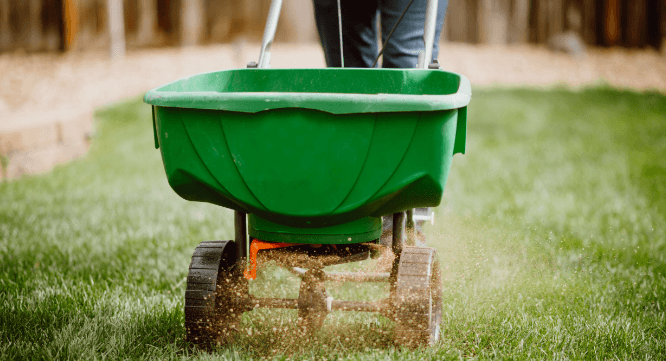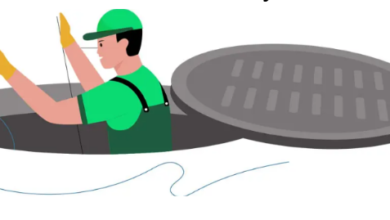Lawn Fertilizer and Weed Control: Managing Weeds Naturally

Most homeowners with lawns desire to have their yards green and healthy all year round. However, one of the greatest barriers to attaining the above goal is the issue of the management of weeds. These plants not only act as competitors to grass for nutrients and space but also mar the beauty of a yard. Fortunately, there are some all natural ways to control weeds and this involves using lawn fertilizers in the control process.
Methods used in the removal of weeds do not necessarily have to involve the use of chemicals on the lawn. Learning how lawn fertilizers affect your lawn enables you to utilize them to minimize weed growth and prevent weeds from spreading.
The focus of this article is to show you natural ways of using lawn fertilizers, while at the same time controlling weeds.
Natural Control Methods for Weed Control
Prevention is always a key factor when it comes to weed management. Mowing the lawn and proper use of fertilizer are some of the easiest natural ways of discouraging pests in the lawn. Use fertilizers according to the nature of your soil and the type of grass present in your compound. Another aspect which should be well implemented is that of mowing heights, which depends on the grass type; but in most cases, it is better not to cut the grass too short. This makes the grass grow thick and effectively shade off weed seeds to ensure they do not germinate.
Another natural technique is mulching. Organic mulching entails the application of organic substances on the surface of the soil and this aids in the conservation of moisture and checking of weeds on the lawn. Some examples of such organic materials include compost or wood chips and straw, which decompose over a certain period and supply nutrients to the plants while denying weeds the light they need to grow, thus limiting their existence.
A Simple Guide on the Lawn Fertilizer and How It Works
Fertilizers are very useful when tending your lawn since they supply the grass with nutrients which are essential for growth. Three of the most frequently used nutrients found in lawn fertilizers are nitrogen, phosphorus, and potassium. Nitrogen helps to produce the leaf blades that make grass have their green color. Phosphorus helps develop root systems, while potassium is useful for the general health of the grass and its ability to thrive in varying conditions, such as high or low temperatures as well as drought.
Lawn Fertilizer Use and Weed Suppression
Lawn fertilizer as a natural weed control method calls for timely and precise application. Timing of the fertilization is important as well as the quantity used, so as to build up the lawn before the weeds begin to germinate.
It is advisable to have a slow release fertilizer that provides a consistent quantity of nutrients to your lawn to avoid your plants getting weaker and the subsequent growth of weeds.
Conclusion
Getting rid of unwanted plants on your lawn does not always call for the use of chemical solutions. Lawn fertilizers, when appropriately applied, can be natural methods for weed control. Incorporate the practices above into your lawn care practices. These will result in minimal weed infestations, ensuring that you have a beautiful landscape all the time.






